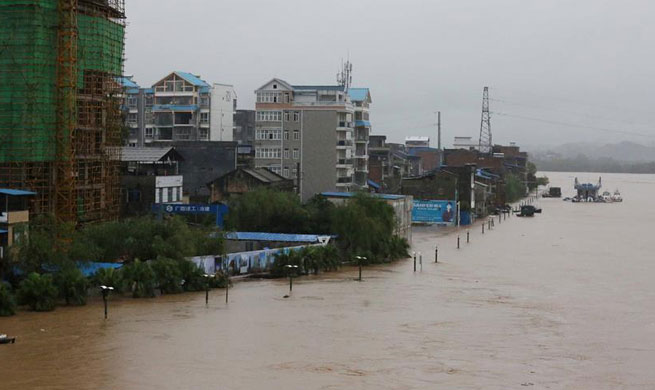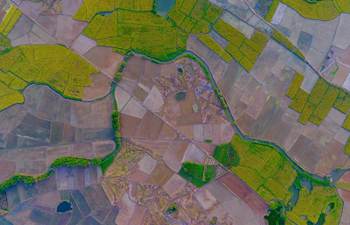WELLINGTON, Aug. 15 (Xinhua) -- About 40 percent of the 35 billion-NZ dollar (25.5 billion-U.S. dollar) New Zealand Superannuation Fund, or its global passive equity portfolio, is now low-carbon, the Guardians of New Zealand Superannuation said on Tuesday.
The fund is quitting or reducing holdings in 300 firms, including leading international energy companies, to reduce exposure to those emitting greenhouse gases, said a New Zealand Superannuation Fund release, adding that the move means the fund is more resilient to climate change investment risks such as stranded assets.
The changes have significantly reduced the fund's overall carbon footprint and are a key plank within the Guardians' ongoing strategy to address climate change investment risk, the release said.
The transition involved reallocating 950 million NZ dollars (692 million U.S. dollars) away from companies with high exposure to carbon emissions and reserves into lower-risk companies, it said.
Chief Executive Adrian Orr said that the NZ Super Fund's focus on addressing climate change risk is in line with current global best practice by institutional investors.
"There is a global consensus that climate change presents material risks for long term investors," Orr said, adding that leading investors around the world are adjusting their portfolios to address climate change risk and capture opportunities stemming from the transition to a low-carbon economy.
Chief Investment Officer Matt Whineray said that financial markets were underpricing climate change risk over the fund's long investment timeframe, and the global energy system is transitioning away from fossil fuels.
"For investors with very long horizons, such as the fund, reducing exposure to carbon emissions and reserves is a low-cost insurance policy," Whineray said.
"Reducing the fund's exposure to carbon is a commercial decision based on long-term risk to our portfolio as a whole," he said, adding that companies have the opportunity to re-enter the portfolio in the future if they improve their management of climate risk.

















